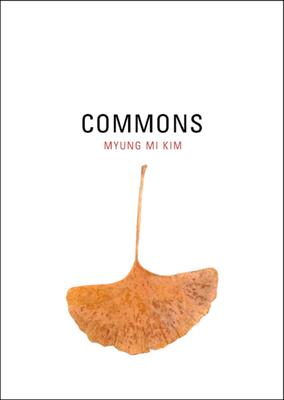
Kim's blank spaces are loaded silences: openings through which readers enter the text and find their way. These silences reveal gaps in memory and articulate experiences that will not translate into language at all. Her words retrieve the past in much the same way the human mind does: an image sparks another image, a scent, the sound of bombs, or conversation. These silences and pauses give the poems their structure.
Commons's fragmented lyric pushes the reader to question the construction of the poem. Identity surfaces, sinks back, then rises again. On this shifting ground, Kim creates meaning through juxtaposed fragments. Her verse, with its stops and starts, its austere yet rich images, offers splinters of testimony and objection. It negotiates a constantly changing world, scavenging through scraps of experience, spaces around words, and remnants of emotion for a language that enfolds the enormity of what we cannot express.
Kim's blank spaces are loaded silences: openings through which readers enter the text and find their way. These silences reveal gaps in memory and articulate experiences that will not translate into language at all. Her words retrieve the past in much the same way the human mind does: an image sparks another image, a scent, the sound of bombs, or conversation. These silences and pauses give the poems their structure.
Commons's fragmented lyric pushes the reader to question the construction of the poem. Identity surfaces, sinks back, then rises again. On this shifting ground, Kim creates meaning through juxtaposed fragments. Her verse, with its stops and starts, its austere yet rich images, offers splinters of testimony and objection. It negotiates a constantly changing world, scavenging through scraps of experience, spaces around words, and remnants of emotion for a language that enfolds the enormity of what we cannot express.
Paperback
$32.17